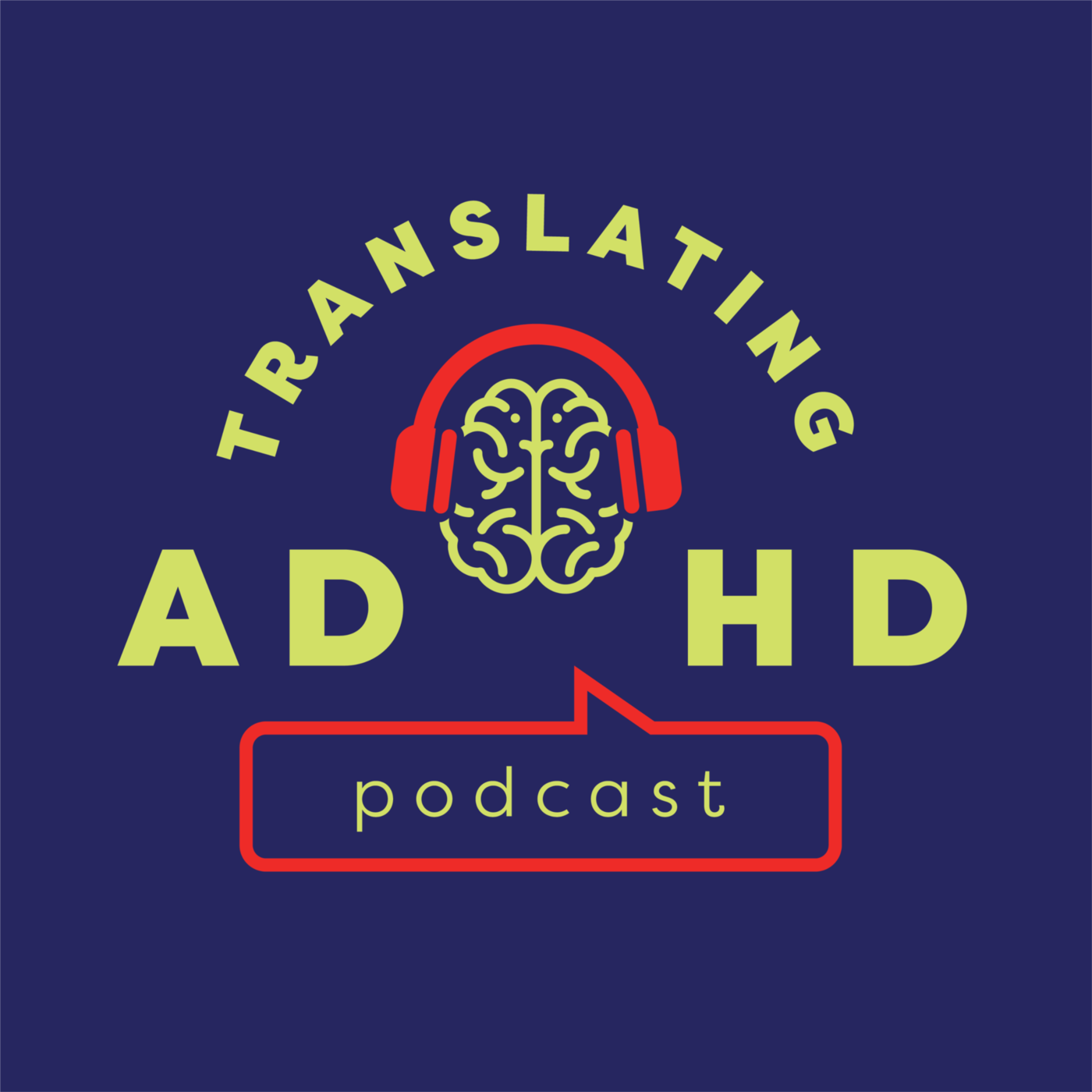

Translating ADHD
Asher Collins and Dusty Chipura
We believe that success with ADHD is possible... with a little translation. Hosts Asher Collins and Dusty Chipura, both ADHD coaches who have plenty of insight to share navigating their own ADHD experiences, discuss how to live more authentically as an adult with ADHD and how to create real, sustained change to achieve greater success. If you are an adult with ADHD who wants more out of their business, career, and life, this is the podcast for you!
Episodes
Mentioned books

15 snips
Jan 22, 2024 • 26min
Being Productive in the Midst of Modern Living with ADHD
The hosts explore the challenges of managing modern living with ADHD, including task prioritization difficulties and scheduling disruptions. They discuss the technique of brain dumping and finding effective strategies for task prioritization. The episode emphasizes understanding one's limitations and focusing on the present moment. The speakers also share personal struggles and offer alternative perspectives to make progress.

Jan 15, 2024 • 19min
Translating ADHD Live! at the Annual International Conference on ADHD
Cam and Asher, ADHD coaching perspectives, discuss nuance, distinction, and curiosity in living authentically at the Annual International Conference on ADHD. They explore decision-making, the power of awareness and naming the trickster, and reflect on time blindness.

Jan 8, 2024 • 27min
Co-creating the Coaching Scope of Work
The hosts discuss the process of developing a scope of work in ADHD coaching, emphasizing the importance of co-creating it with clients. They explore detaching from predefined outcomes, awareness-building, and incorporating self-care. They also highlight the power of coaching in making positive changes, exploring context and reflection, and the benefits of partnering with an ADHD coach.

4 snips
Jan 1, 2024 • 28min
Clarifying Coaching Goals and Outcomes: One Client’s ADHD Coaching Story
The podcast discusses a client's journey in ADHD coaching, emphasizing the importance of clarifying coaching goals. The client, a music teacher, shifted her goals to prioritize and find creative solutions for a better work day. The discussion explores the coaching process, reconnecting with personal values, and navigating challenges with ADHD. It also highlights the challenges faced by a teacher-turned-coach in multiple roles and the difficulties of marketing for individuals with ADHD. The hosts emphasize the importance of prioritizing goals and improving daily life through coaching.

17 snips
Dec 18, 2023 • 28min
Navigating Barriers to Change: One Client’s ADHD Coaching Story
The hosts discuss their coaching approach and the importance of addressing barriers to change. They share a client example of shifting from black-and-white thinking to embracing nuance and curiosity. The client's journey led to increased self-awareness and positive career changes aligned with strengths and values. The episode highlights the power of coaching in cultivating understanding and creating a life that fits for individuals with ADHD.

30 snips
Dec 11, 2023 • 30min
When Are You Ready for ADHD Coaching?
The hosts discuss readiness for ADHD coaching and the importance of timing. They explore topics like vulnerability, shame, and partnership, highlighting the evolving nature of coaching relationships. They also share personal stories from the International ADHD Conference and introduce a new group coaching offering. The significance of acceptance in dealing with ADHD barriers is emphasized. The hosts reflect on creating unscripted content and discuss the role of partnership in coaching.

16 snips
Dec 4, 2023 • 27min
Signs You Are Stuck at the Third Barrier of ADHD - New Learning
The podcast discusses the third barrier of ADHD - the barrier to new learning. They talk about strategies that fade after a couple of weeks and the feeling of always starting over. The hosts emphasize the importance of learning from struggles and experimenting with different approaches. They also highlight the value of coaching and finding a coach who embraces ongoing change.

17 snips
Nov 27, 2023 • 30min
Overwhelm, Burnout and Fear: Signs of the Second Barrier of ADHD
The podcast explores the concept of being stuck at the second barrier of ADHD-action, focusing on overwhelm, fear, and burnout. Strategies for addressing these states include self-care, breaking tasks into manageable steps, developing accurate feedback loops, and separating emotions from activities. The hosts emphasize that being stuck is not a personal failing but a part of ADHD, and encourage curiosity and support to find alternative ways to take action.

24 snips
Nov 20, 2023 • 25min
Three Signs you are Stuck at the First Barrier of ADHD
The hosts discuss being stuck at the first barrier of ADHD and share examples of clients who are unaware of their challenges. They highlight the importance of gaining awareness and recognizing self-criticism. ADHD presents unique challenges and perspectives on it include viewing it as a superpower or a curse. Seeking support and navigating this barrier is crucial.

15 snips
Nov 13, 2023 • 26min
Pulling the Learning Forward: The Third Barrier of ADHD
The podcast explores the third barrier of ADHD, which is learning, and its alignment with the coaching process. The hosts emphasize the importance of well-trained coaches and caution against quick-fix solutions. They discuss the significance of curiosity, detachment, and client-focused engagement in the coaching journey. The difficulty of pulling learning forward with ADHD is highlighted, along with the importance of continuous learning and individual systems. The hosts share client stories and encourage listeners to be wary of empty promises and talkative coaches.


